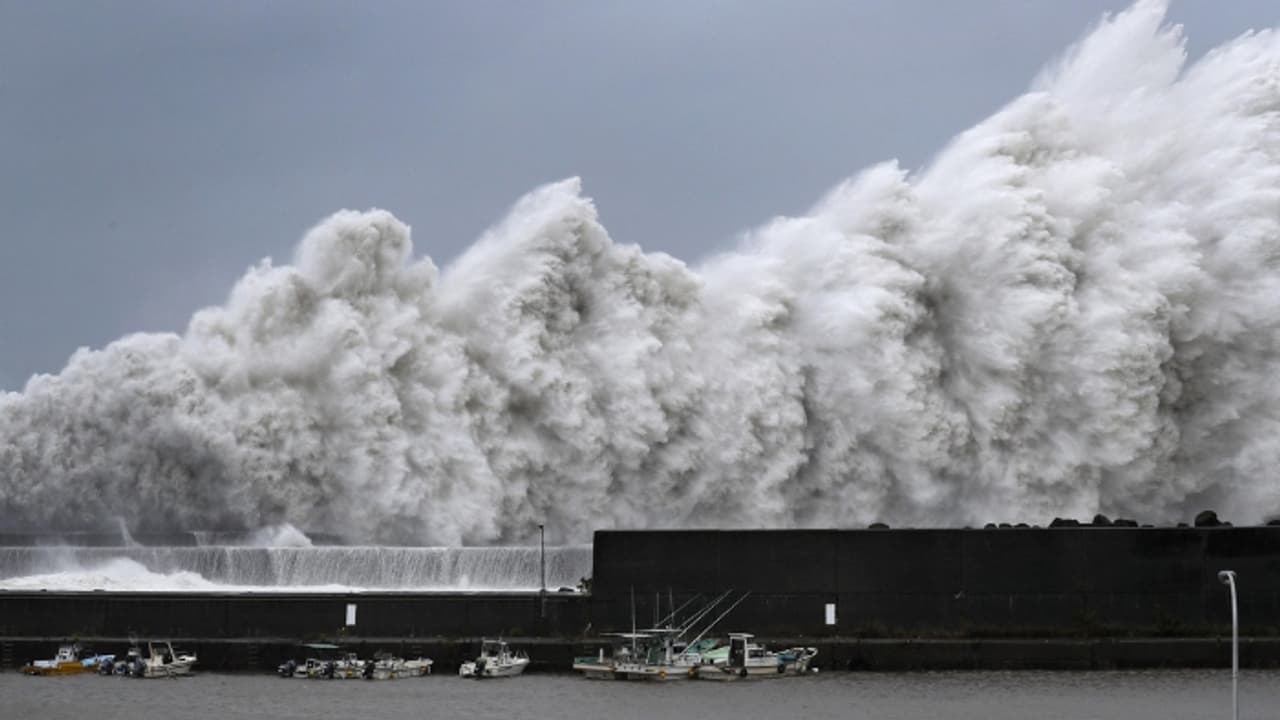Japan has had a string of natural disasters in recent months. The summer brought devastating floods, landslides, torrential rains and deadly hot temperatures across the country
Tokyo: Floods, typhoons, earthquakes and a record-shattering heat wave. The summer of 2018 has been an unusually destructive and deadly one in Japan, even for a country prone to natural disasters.
June 18: Osaka earthquake
A magnitude 6.1 earthquake struck during the morning rush hour in the city of Osaka, killing five people and injuring more than 400 others. Two of the victims were hit by falling cinder-block walls, including a 9-year-old girl outside her school, sparking an inspection and tearing down of many of the ageing structures.
July: West Japan floods
Unusually heavy rain in western Japan claimed 221 lives as landslides buried homes and rivers broke through embankments. Floodwaters reached the top of the first story of buildings. The cities of Hiroshima and Kurashiki and nearby areas were hardest hit. Weeks later, more than 1,500 people are still living in shelters.
July: Record heat
A prolonged heat wave was blamed for at least 116 deaths, as two high-pressure systems trapped warm and humid air above the region. The temperature reached 41.1 degrees Celsius (106 degrees Fahrenheit) on July 23 in Kumagaya, about 65 kilometres (40 miles) northwest of Tokyo, the highest recorded anywhere in Japan in recent history.
September 4: Typhoon Jebi
The strongest typhoon to hit Japan in 25 years ripped off building roofs, tossed cars onto their sides and flooded one of Japan's busiest airports, forcing it to close for at least three days. 11 people died. The bridge connecting the offshore airport to the mainland was severely damaged when the storm drove a tanker ship sideways into it.
September 6: Hokkaido earthquake
A magnitude 6.7 earthquake struck around 3 am on Hokkaido, leaving deep gashes in roads, triggering landslides and knocking out power and train service across Japan's northernmost main island. At least 16 people were dead or presumed dead after scores of hillsides collapsed, burying homes. Rescuers were using dogs, backhoes and shovels to search for survivors trapped in mud and debris from landslides triggered by the powerful earthquake.
Prime Minister Shinzo Abe said nearly half of the nearly 3 million households on the island had their power restored after a day of island-wide blackouts. "The forecasts are for rain, and that could bring more landslides, so please continue to exercise extreme caution," he said.
